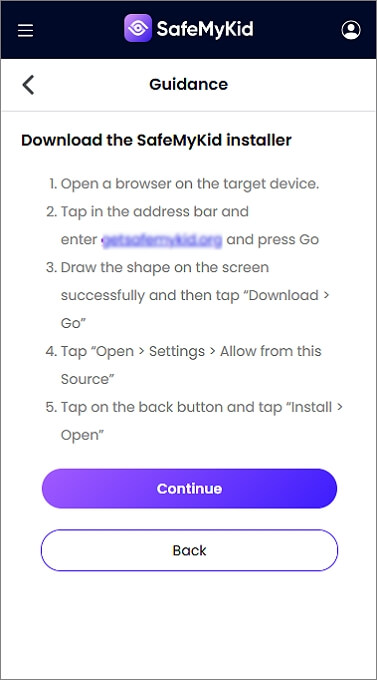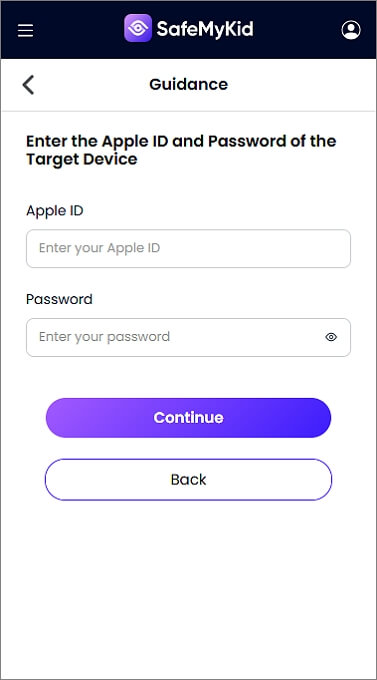You Have a Gut Feeling He’s Cheating, No Proof? Here are 5 Signs & How to Prove It

Something feels off in your relationship, but you can’t quite put your finger on it. You have a gut feeling he’s cheating, but no proof. Do you trust your gut and investigate further, or dismiss it as overthinking? Many people find themselves in this exact situation, torn between intuition and lack of evidence.

While gut feelings can be surprisingly accurate, they aren't enough on their own. This article will help you identify five clear signs of infidelity and explore effective ways to confirm the truth.
5 Signs Your Gut Feeling He’s Cheating Might Be Right
Certain patterns may suggest that he’s being unfaithful. If you’ve noticed unusual shifts in his actions, attitude, or habits, it’s worth paying closer attention. Here are five signs that he might be cheating.

1. Changes in Behavior and Routines
A sudden shift in daily habits can be a major red flag in a relationship. If your partner was once predictable—coming home at the same time, maintaining a consistent routine, and openly sharing his plans—but now frequently works late, spends excessive time on his phone, or suddenly seems distant, it’s worth paying attention.
2. Emotional Distance and Decreased Intimacy
If your once-affectionate partner has become emotionally withdrawn, there may be a deeper reason behind it.
A sudden shift in emotional connection—such as avoiding meaningful conversations, seeming distracted, or failing to express love in ways he once did—can be a sign that something is amiss.
3. Increased Secrecy with Phone and Social Media
Is he suddenly overly protective of his phone? If he once left it lying around but now keeps it locked, turned face-down, or takes it everywhere—even to the bathroom—it could be a sign of secrecy.
He may also turn off notifications, delete call logs, or step out of the room to take calls, all of which suggest he doesn’t want you seeing something.
4. Unexplained Expenses and Financial Red Flags
Unexpected charges on credit card statements or unexplained cash withdrawals can be a red flag. If he’s spending money on gifts, hotel stays, or expensive dinners without a reasonable explanation, it’s worth questioning.
These purchases might not always be obvious, but frequent, unaccounted-for expenses could indicate secret spending.
5. Frequent Arguments or Accusations Against You
A guilty conscience can make some cheaters deflect suspicion by accusing their partner instead.
If he suddenly becomes overly critical, starts unnecessary arguments, or tries to make you feel guilty for no reason, he could be projecting his own wrongdoing onto you. This behavior is a way to shift attention away from himself.
Why Does He Cheat on You?

When faced with the unsettling gut feeling that your partner might be cheating, it's natural to wonder why he would do it in the first place. While every situation is unique, certain patterns and psychological factors often contribute to infidelity. Understanding these reasons can help you process your emotions and decide how to move forward.
1. Lack of Emotional Fulfillment
Many people cheat because they feel emotionally disconnected from their partner. If he feels unheard, unappreciated, or distant from you, he may seek validation elsewhere, even if he still loves you.
2. Physical Temptation and Opportunity
Sometimes, cheating isn’t about emotional dissatisfaction but rather about physical attraction and opportunity. If he finds himself in tempting situations—such as traveling for work, spending time with flirtatious friends, or reconnecting with an ex—he might make impulsive decisions.
3. Desire for Excitement or Novelty
Some men cheat simply because they crave excitement. If the relationship has become routine or predictable, he may seek the thrill of something new, even if it risks losing what he already has.
4. Commitment Issues or Fear of Intimacy
Men who struggle with commitment often sabotage their relationships through infidelity. If he has a deep-rooted fear of settling down, he might cheat as a subconscious way to create distance.
5. Influence of Friends or Social Circles
If he surrounds himself with people who normalize or encourage cheating, he may justify his actions. Peer influence plays a significant role in many decisions, including fidelity.
6. Lack of Respect for the Relationship
Some men cheat because they don’t truly respect their partner or the commitment they made. If he doesn't value the relationship, he may not think twice about crossing boundaries.
While none of these reasons excuse infidelity, understanding the motivations behind cheating can help you decide how to handle the situation. Whether you choose to confront him, seek clarity, or move on, knowing why he cheated may give you a sense of closure.
4 Ways to Gather Proof He’s Cheating
Before confronting someone about suspected infidelity, it’s important to have concrete evidence rather than relying solely on gut feelings. Here are four ways to collect evidence discreetly and effectively.
1. Observe Patterns and Keep a Record
Noticing one or two suspicious behaviors might not mean much, but consistent patterns can reveal the truth. Keep a journal of his actions, including sudden schedule changes, suspicious phone behavior, or emotional shifts.

If you start seeing a pattern—like unexplained late nights or frequent deleted messages—you’ll have something more concrete to work with.
Limitations:
- Behavioral changes might be caused by stress, work, or personal issues unrelated to cheating.
- Without direct proof, patterns alone may not confirm infidelity.
- Keeping track of details can be time-consuming and emotionally exhausting.
2. Talk to Mutual Friends or Trusted Sources
Friends, family, or coworkers may have noticed changes in his behavior before you did. While some people may hesitate to get involved, a trusted friend might confirm things you’ve already suspected.

Be careful when approaching others for information—avoid spreading rumors and stick to close confidants who may have useful insights.
Limitations:
- Friends may be biased or unwilling to get involved.
- Information from others can be based on assumptions, not facts.
- There’s a risk of rumors spreading, which could damage relationships.
3. Have an Open and Honest Conversation
When you’re ready, bring up your concerns calmly. Instead of accusing him, ask open-ended questions like:
- “I feel like something has changed between us. Is there something you want to talk about?”
- “I’ve noticed you’ve been more distant lately. Is everything okay?”

Sometimes, just starting a conversation can lead to confessions or reactions that help you understand the truth.
Limitations:
- If he is cheating, he may lie or become defensive.
- Confronting him too soon without concrete proof might push him to hide things better.
- Emotional conversations can escalate into arguments rather than revealing the truth.
4. Use a Smart Tool Like SafeMyKid
SafeMyKid is an effortless way to confirm your suspicions without invading privacy. Unlike traditional tracking methods, SafeMyKid provides real-time location tracking, message monitoring, and call history insights to help you uncover the truth without confrontation.
Additionally, SafeMyKid operates in stealth mode, ensuring that the target device user remains unaware of any monitoring activities.
With features like geofencing alerts and social media activity tracking, it offers a comprehensive way to detect unusual behavior patterns without direct confrontation. This makes it a reliable tool for those seeking clarity in a discreet and responsible manner.

Why Use SafeMyKid to Gather Proof He’s Cheating?
When suspicions arise, gathering evidence discreetly and securely is crucial. SafeMyKid offers a reliable way to monitor activities without being intrusive, ensuring that you get the clarity you need before making any decisions.
- Discreet & Secure – Operates in stealth mode, allowing you to track activities without raising suspicion.
- Detailed Reports – Provides access to location history, messages, and call logs, helping you identify patterns of behavior.
- Easy to Use – Features a user-friendly interface with a straightforward setup, ensuring quick access to insights.
- Real-Time Tracking – Instantly updates you on movements, so you can verify locations in real time.
- Comprehensive Monitoring – Beyond calls and texts, it also tracks app usage and social media interactions for a complete picture.
How to Confirm Your Gut Feeling He’s Cheating with Proof
When doubts arise, having a reliable method to verify the truth is essential. SafeMyKid makes it easy to discreetly track activities, ensuring you have the necessary insights without direct confrontation.
How to Confirm Your Gut Feeling He’s Cheating with Proof on Android
Step 1. Sign Up
Create an account on the SafeMyKid website.

Step 2. Install and Set Up SafeMyKid on Android
Download and install the app on the target Android. Follow on-screen instructions to set the app up.

Step 3. Confirm Your Gut Feeling with Proof He’s Cheating on Android
Access real-time and historical data on location, calls, and messages through your dashboard to confirm if he’s cheating with proof.

How to Confirm Your Gut Feeling He’s Cheating with Proof on iPhone
Step 1. Sign Up
Register for a SafeMyKid account.

Step 2. Input iCloud Details
Enter the Apple ID credentials associated with the target device. No app installation required.

Step 3. Gather Proof to Confirm Your Gut Feeling He’s Cheating on iPhone
View location history, call logs, and messages securely through SafeMyKid’s dashboard. Get instant notifications of unusual movements or suspicious behavior.

How to Confront Him After Gathering Proof and Confirming Your Gut Feeling

Once you've gathered enough evidence to confirm your suspicions, the next step is deciding how to confront him. This conversation can be emotionally charged, so it’s essential to approach it with a clear mind and a plan. Here’s how to do it effectively:
1. Choose the Right Time and Place
Timing and setting matter. Pick a private, calm environment where you can have an uninterrupted discussion. Avoid public places or moments when emotions are already running high.
2. Stay Calm and Composed
While it’s natural to feel hurt and angry, try to remain composed. Yelling or making accusations might make him defensive, preventing an open and honest conversation. Instead, speak in a firm but controlled manner.
3. Present the Evidence Strategically
Show him the proof you’ve gathered—whether it’s suspicious messages, location history, or behavioral patterns. Stick to the facts and avoid making assumptions beyond what the evidence confirms.
4. Ask Direct Questions
Instead of beating around the bush, ask him straightforward questions like:
- "Why did you feel the need to be with someone else?"
- "How long has this been going on?"
- "Were you ever planning to tell me the truth?"
His reaction and answers can reveal a lot about his intentions and level of remorse.
5. Observe His Response
Pay attention to his body language and the way he reacts. If he immediately becomes defensive, dismissive, or tries to manipulate the situation, he may not be willing to take responsibility. A sincere person will acknowledge their actions and express remorse.
6. Decide What Comes Next
After the confrontation, take time to reflect. Do you want to work things out, or is it time to walk away? Your decision should be based on how he responds, your own self-respect, and what you need for your emotional well-being.
A confrontation isn’t just about getting the truth—it’s about finding closure and clarity. Whatever the outcome, prioritize your own peace and happiness.
FAQs on Gut Feeling He’s Cheating, No Proof
While a gut feeling can be a strong indicator, it’s essential to approach the situation with logic and gather facts before making accusations. Below are common questions and answers to help you navigate your suspicions.
1. Can gut feelings alone prove that my partner is cheating?
No, gut feelings can be strong indicators, but they are not concrete proof. It’s important to look for patterns, gather evidence, and communicate openly before jumping to conclusions.
2. How can I confront my partner without proof?
Approach the conversation calmly and express your concerns without making direct accusations. Focus on specific behaviors that have changed rather than assuming infidelity right away.
3. Are there any psychological signs that indicate cheating?
Yes, sudden mood swings, increased secrecy, excessive defensiveness, and gaslighting tactics (making you question your reality) can all be psychological signs of potential cheating.
4. What if my partner denies everything but I still feel something is wrong?
Trust your instincts but avoid making baseless accusations. Continue observing, set boundaries, and consider discreet methods to gather more clarity, such as monitoring behavioral changes over time.
5. Can therapy help if I suspect my partner is cheating?
Yes, couples or individual therapy can provide guidance on how to navigate trust issues, improve communication, and determine the best path forward, whether that means working on the relationship or seeking closure.
Conclusion
If you have a gut feeling he’s cheating, but no proof, don’t ignore it—but don’t jump to conclusions either. Look for consistent signs of cheating and use smart tools like SafeMyKid to gather proof discreetly.
At the end of the day, trust is the foundation of any relationship. Whether your suspicions are confirmed or proven wrong, having clarity can help you make the best decision for your future.



